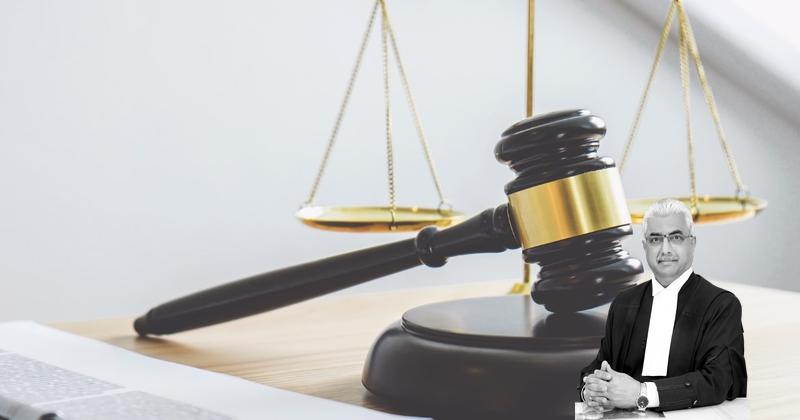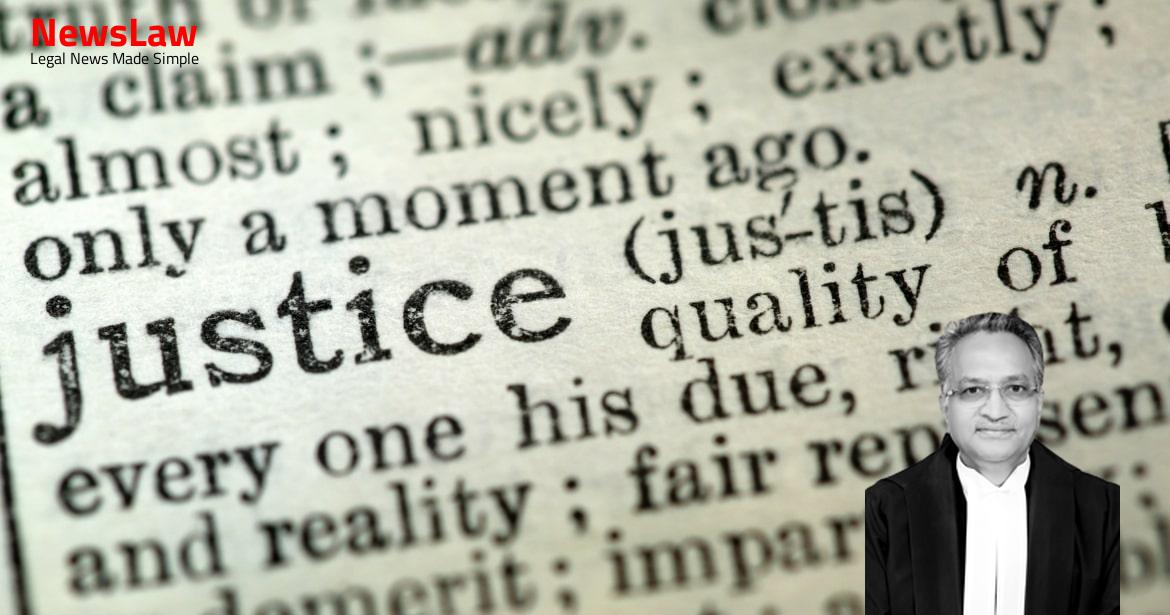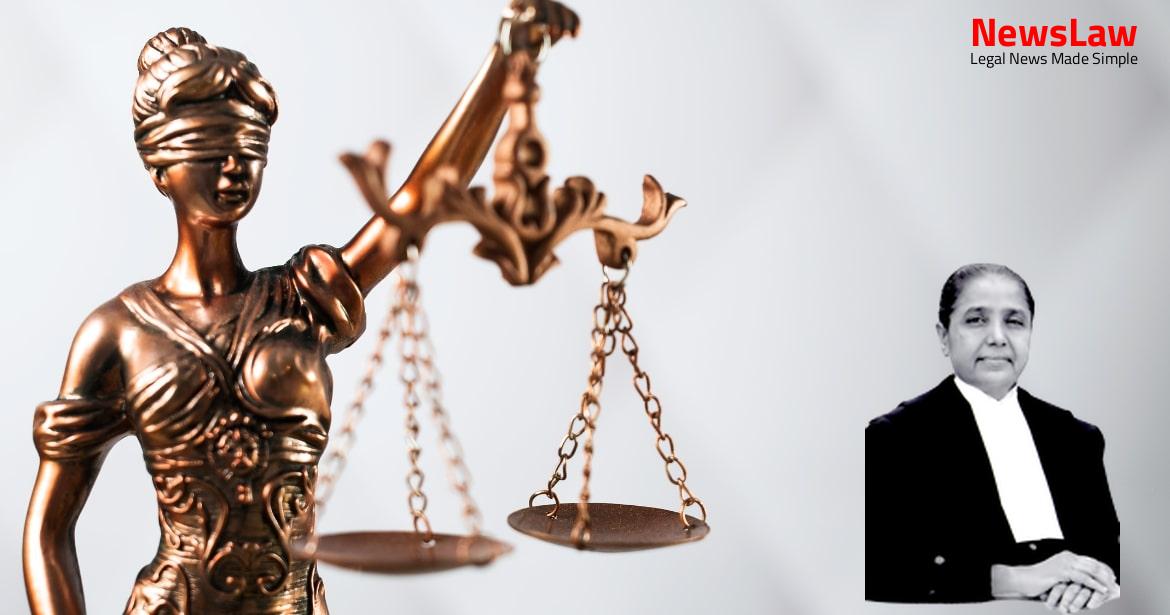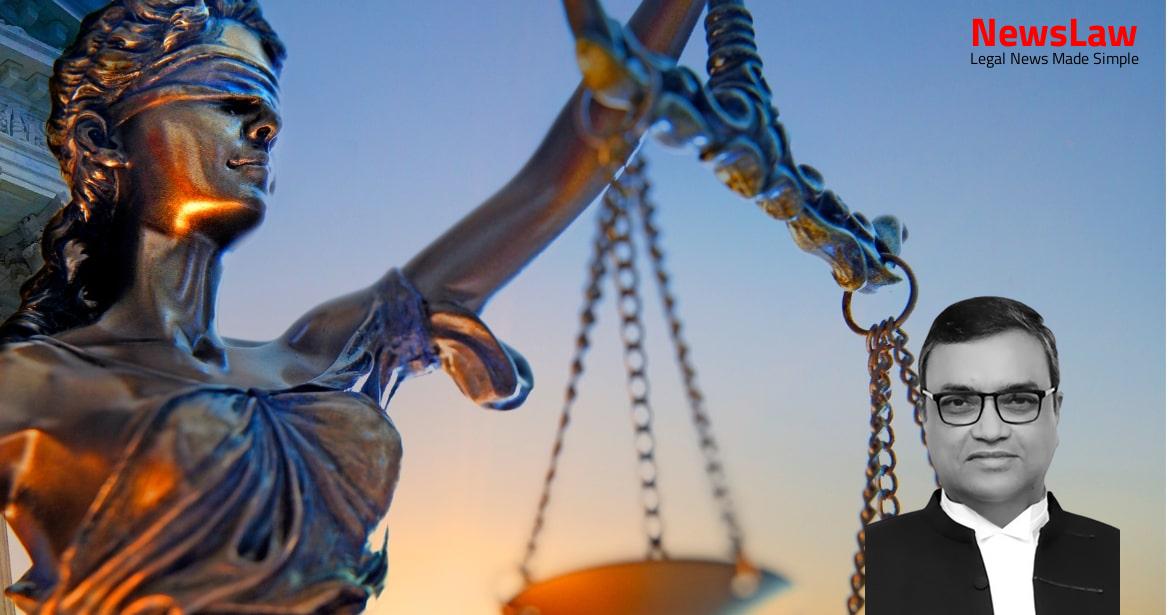The High Court by the impugned judgment held that appellants had failed to establish any untoward incident or the deceased was a bona fide passenger however upholding the impugned judgement dated 29.06.2017 of the Railway Claims Tribunal, Chennai Bench, claim petition filed seeking compensation for the death of Muchamy @ Muthusamy was dismissed.
When the train reached Mahadanapuram Railway Station, due to heavy crowd in the compartment and jolting of the train, the deceased unexpectedly fell down from the running train between the platform and track at KM 90/200-300 and sustained grave injuries including decapitation and amputation of right hand. The Claims Tribunal by 4 its judgement dated 29.06.2017 dismissed the claim application holding that the appellants have failed to prove the death of deceased in an untoward incident and he was not a bona fide passenger making the Railway liable for grant of compensation.
On filing Civil Miscellaneous Appeal No 2442 of 2019 before the High Court, it was dismissed making an observation that the findings of Claims Tribunal are not perverse as the deceased was not found to be a bona fide passenger and appellants have failed to prove the death of deceased is an outcome of untoward incident.
Per Contra, learned counsel for the respondents submitted that there are two necessary ingredients which need to be proved on strict parameters; first the deceased 6 being a ‘bonafide passenger’ and second being the occurrence of an ‘untoward incident’. As per Section 124A, the Railway Administration is liable to pay compensation on account of untoward incident.
Union of India, Andhra Pradesh High Court in Jetty Naga Lakshmi Parvathi vs Union of India and also considered the judgement of this Court in Kamrunnissa vs Union of India a nd in para 29 concluded as thus- “ We thus hold that mere presence of a body on the railway premises will not be conclusive to hold that injured or deceased was a bona fide passenger for which claim for compensation could be maintained. As per the averments of the FIR, it revealed that on 27.9.2014, complainant Manikandan (AW1) son of the deceased purchased a ticket of Erode Passenger Train from Lalapettai to Karur at Lalapettai Railway Station and gave it to his father Muchamy @ Muthusamy, who was going to Government Hospital, Karur for his medical treatment.
Also Read: https://newslaw.in/supreme-court/acquittal-in-kidnapping-and-abduction-case-courts-legal-analysis/
While the train came to Mahadanapuram Railway Station the deceased adrift and fallen down from the train compartment and entangled with train result of head decapitated, hand amputated and died at the spot.”
As per the investigation made with occurrence place witness, inquest panchayatar witness, and as per enquiry with the doctor who done the post-mortem the deceased Muchamy @ Muthusamy, 50/14, s/o Mookkan, Kodikkal Street, Lalapettai, Krishnarayapuram-TK, Karur-Dt used to go to Karur GH for the medical treatment of the wound on his leg on the date of occurrence came to station with his son by bicycle and his son purchased the ticket and sent him in the train Trichy to Karur and went to his job. In the said report, final conclusion of the enquiry was reported as under: “Enquiry reveals that on 27.9.2014, the deceased was on his way to Government Hospital, Karur for medical treatment and travelled in T.No.
When the said train was leaving after its scheduled stoppage, the deceased fell down and died at the spot.” The said finding of the investigation was recorded after considering the statement of D. In this regard, the ocular statement of AW1- Manikandan, son of the deceased, who procured a 13 valid train ticket for travel from Lalapettai to Karur and handed it over to the deceased is on record. Nothing has been placed before Claims Tribunal or brought on record during the course of hearing that the Railway Administration has discharged the burden of not 14 having the valid railway ticket with the deceased passenger, except to say that during recovery ticket was not found. In view of the above, the claimants are held entitled to seek compensation, but during hearing, it is brought to our notice that after the date of accident and filing the claim petition on 25.7.2016, the Compensation Rules, 1990 were 15 amended w.e.f. In Kesoram Industries, the question was when for purposes of calculating “net wealth” under the Wealth Tax Act, 1957 provision for payment of tax could be treated as “debt owed” within the meaning of Section 2( m ) of the said Act.
We are 16 of the view that law in the present context should be taken to be that the liability will accrue on the date of the accident and the amount applicable as on that date will be the amount recoverable but the claimant will get interest from the date of accident till the payment at such rate as may be considered just and fair from time to time. Wherever it is found that the revised amount of applicable compensation as on the date of award of the Tribunal is less than the prescribed amount of compensation as on the date of accident with interest, higher of the two amounts ought to be awarded on the principle of beneficial legislation. The said judgment was further explained by this Court in the case of Radha Yadav (supra), relevant para 11 is reproduced as thus: “11. If, after applying reasonable rate of interest, the final figure were to be less than Rs.8,00,000/-, which was brought in by way of amendment, the claimant would be entitled to Rs.8,00,000/-.
8,00,000/-, then appellants shall be entitled to Rs. 8,00,000/-, then appellants shall be entitled to Rs.
No order as to costs.
Case Title: KAMUKAYI Vs. UNION OF INDIA (2023 INSC 541)
Case Number: C.A. No.-003799-003799 / 2023



